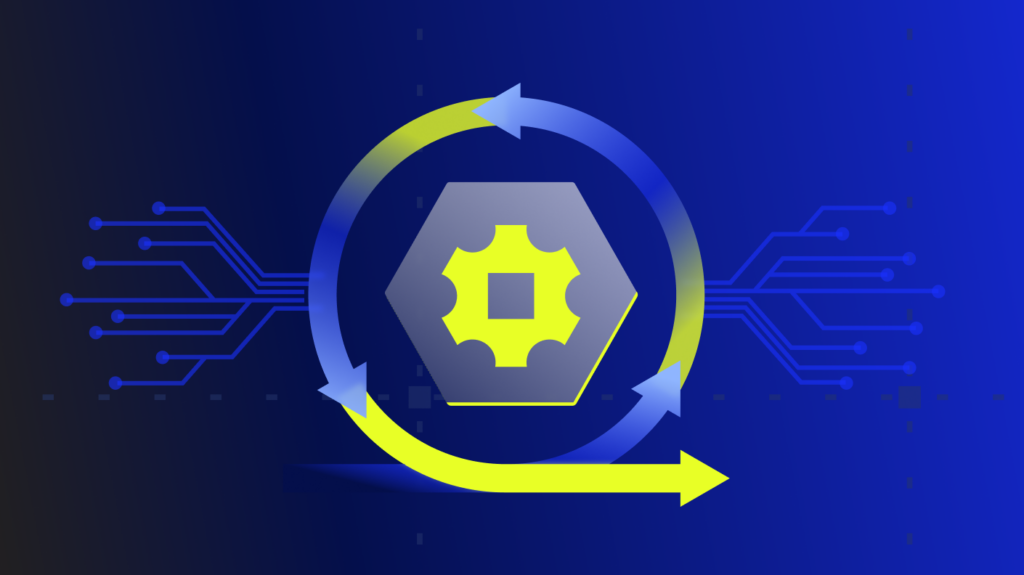Data hygiene is a critical but often overlooked concept for businesses of all sizes. Think of any activity that involves the use and storage of data, like customer relationship management (CRM), marketing automation, customer service, or analytics; then add in trends like increasing regulations and customer expectations around privacy. Data hygiene needs to be on the top of your list when you’re managing customer relationships across multiple channels.
Here we’ll cover what data hygiene is, why it’s important, and how the principles behind data hygiene impact customer trustworthiness, leadership development strategies in your company culture, as well as safeguarding proprietary rights to your business’ unique digital assets.
What is data hygiene?
Data hygiene is the practice of keeping a database clean and accurate by taking steps to ensure its integrity. It involves regular cleaning, validating, and updating data to make sure that it is accurate, up-to-date, complete, consistent, and reliable. This helps organizations avoid costly errors such as incorrect information on customer records or inaccurate segmentation of target audiences.
Data hygiene is a critical part of any data management strategy and should be conducted regularly as your data accumulates in databases over time. To do this, organizations must ensure that their database systems contain the most up-to-date information. This includes removing incorrect or outdated records, performing deduplication processes to eliminate duplicate records, implementing address standardization to ensure consistent formats across different sources, and validating data against established quality rules.
Organizations can also use data profiling techniques to uncover potential issues with their data before attempting any type of cleanup. Data profiling provides an initial analysis of existing datasets so that organizations can understand the structure and content of their datasets before taking more specific steps toward improving their quality.
Data hygiene is also important for organizations when it comes to complying with data privacy regulations and laws, especially those related to consumer data protection. It’s essential to keep customer records accurate and up-to-date so organizations can ensure that the data shared with third parties is secure, valid, and compliant with the relevant legislation. Furthermore, it helps organizations protect themselves from malicious activities like identity theft or fraud.
Finally, data hygiene helps organizations leverage their customer data more effectively by enabling them to better divide customers into meaningful segments for marketing campaigns and other insights-driven initiatives. By having a well-regulated database that contains clean and reliable information about customers and prospects, marketers can gain a deeper understanding of their target audiences and create highly personalized campaigns that are more likely to resonate with customers.
Why is data hygiene important?
Data hygiene is an integral part of data management, and it is becoming increasingly important as organizations collect, store, and use more data than ever before. The main goal of data hygiene is to ensure that all relevant datasets are accurate and consistent across all systems. Without proper data hygiene processes in place, organizations run the risk of making decisions based on inaccurate or outdated information, which can be costly and damaging to the business. A good data hygiene plan should enable organizations to identify, analyze, and resolve any issues with their data quickly and effectively.
Data hygiene is essential for businesses looking to gain a competitive edge in today’s market. Poorly maintained databases can lead to inaccurate customer segmentation, incorrect reporting, faulty marketing campaigns, and ultimately lost customers or revenue. On the other hand, having clean data helps businesses obtain valuable insights into customer behaviors which they can use to deliver better products and services as well as more effective marketing strategies. Clean data also makes it easier for businesses to comply with privacy regulations such as the GDPR or CCPA by ensuring all personal information is stored securely and used appropriately.
Benefits of data hygiene
The benefits of engaging in proper data hygiene can be seen across many business functions.
- When it comes to customer relationships, maintaining clean data is essential for providing accurate responses when customers contact organizations with questions or requests. By having access to up-to-date information, including contact details and purchase history, companies are able to respond quickly and accurately – a key component in providing top-notch customer service. Good customer engagement also depends on data accuracy, and when customer data is incorrect or out-of-date, it can lead to frustrated customers who may turn away from your business for a competitor.
- When marketing campaigns are based on inaccurate or incomplete data, the results can be costly. Messages that are sent to an outdated list of contacts will not only fail to generate new leads, but they can damage brand reputation. Some companies have been known to send out inappropriate messages due to incorrect contact information – creating ill will with potential customers. On the flip side, having clean data helps ensure targeted emails reach the right people, who are more likely to become customers.
- In addition to helping businesses increase customer loyalty and satisfaction, clean databases also help them reduce costs associated with data management. When data is inaccurate or incomplete, organizations often spend more time and money to update it, resulting in lost productivity and higher overhead costs.
Data hygiene best practices
Data hygiene best practices are essential for any organization that collects and stores large amounts of data. It is paramount to ensure the accuracy, completeness, and consistency of the data in order to maximize its usefulness. Therefore, it is crucial to audit, automate and update your data at regular intervals.
Audit
Before making changes to your database or adding new records, it is important to conduct a thorough audit of all existing records. This allows you to identify any discrepancies or inconsistencies that may exist. It is also important to use appropriate methods when validating your database, such as cross-referencing with other sources or using automated tools which can flag inaccuracies quickly and accurately.
Automate
Automating certain tasks associated with data hygiene can help save you time and money while also ensuring accuracy. For example, automating processes such as data entry, data extraction, backup creation, and report generation can all help to streamline tasks and reduce the risk of human error.
Update
It is important to regularly update your database with new records or edits that have been made. As changes in the marketplace occur, so do the needs of customers; having an up-to-date database will ensure that your contact information remains accurate and relevant. Additionally, make sure to always back up your database before making any major changes or updates so that if anything goes wrong, you have a copy of what was previously there.
By utilizing these best practices for data hygiene, you can ensure the accuracy and efficiency of your data and maximize its value. Regularly auditing, automating, and updating your database will help to keep it accurate, compliant, and secure while also providing valuable insights into your customers’ needs.
Data hygiene vs. data quality
Data hygiene and data quality are both important components of any business’s successful data management strategy, but there is a distinct difference between them. Data hygiene is the process of ensuring that all data within an organization is clean and accurate by removing incorrect or incomplete records and fixing errors. Examples of such activities may include eliminating duplicates, correcting misspellings, completing missing fields, matching records across multiple databases, and formatting data consistently. Data quality, on the other hand, focuses more heavily on evaluating information to make sure it meets certain standards. This involves assessing things like completeness, accuracy, relevancy, and timeliness. It also entails testing for issues, such as errors in calculations or inconsistencies in formatting. The end goal here is to verify that the data is usable and valuable.
Data hygiene and quality efforts both ensure that an organization’s information is accurate, up-to-date, and meets certain standards. However, there are a few key differences between these two activities. Data hygiene is more focused on fixing errors in the data itself – or cleaning it up – while data quality involves evaluating the data to ensure it adheres to specific criteria and standards. Additionally, data hygiene attempts to ensure accuracy through manual processes such as eliminating duplicates or correcting misspellings. In contrast, data quality focuses more heavily on automated tests for integrity issues such as calculation errors or inconsistencies in formatting.
Given their distinct roles within a successful data management strategy, it is important for organizations to understand the difference between data hygiene and data quality. Companies should invest in both data hygiene and data quality solutions to ensure their data is up-to-date and reliable, leading to better decision-making, improved customer experiences, and increased operational efficiency.
Data hygiene vs. data integrity
Data hygiene vs. data integrity is another important distinction when it comes to managing data. Data integrity goes beyond data quality, which merely requires that data is reliable and accurate. Data integrity actually encompasses data quality. To ensure data integrity, it is important for organizations to have secure access control measures in place to prevent unauthorized access and manipulation of the data. This includes user authentication checks, encryption of sensitive information, regular backups of the database, and detailed audit trails to track user changes. Additionally, it is important to have a comprehensive set of rules and procedures that govern how user actions should be handled when dealing with the dataset. This ensures that any discrepancies or inconsistencies within the database can be quickly identified and addressed.
Ultimately, data hygiene and data integrity are two important aspects of data management that need to work together to ensure the accuracy and reliability of an organization’s data. While data hygiene focuses on improving the quality of data inputs, data integrity works to safeguard the integrity of those inputs and prevent unauthorized access or manipulation. By ensuring both processes are regularly implemented and maintained across an organization’s systems, businesses can trust their data to be reliable and accurate at all times.
Conclusion
Data hygiene is critical for businesses because it helps ensure that data is clean, accurate, and consistent. This can in turn help improve business efficiency and decision-making, as well as customer satisfaction. Implementing data audits, automation, and update processes are key to maintaining good data hygiene. It’s also important to understand the difference between data quality and integrity when managing your company’s data.
By following best practices for data hygiene, you can help your business run more smoothly and avoid potential issues down the road.
Subscribe to our blog
Get articles like this delivered straight to your inbox







